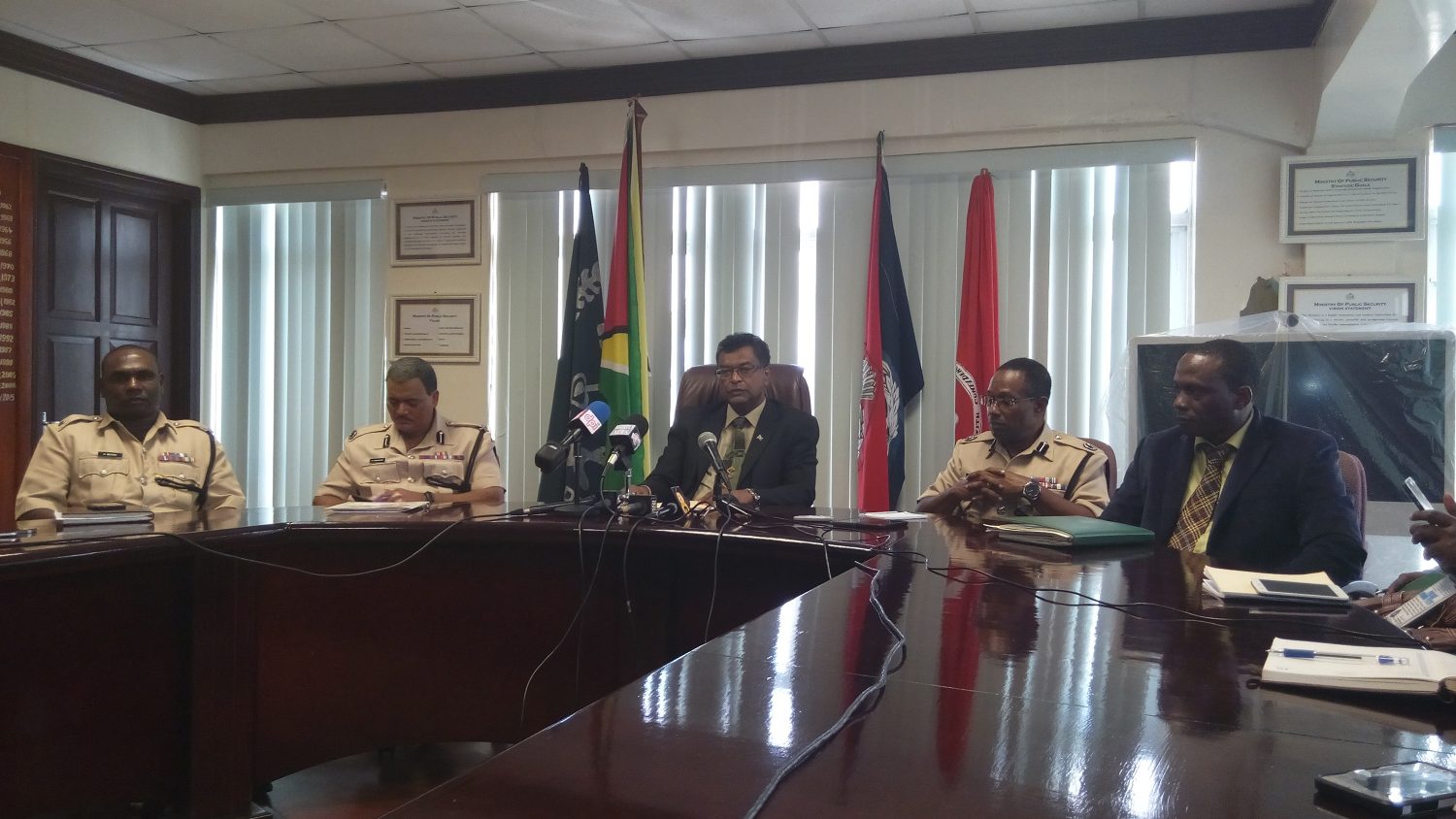Though the Commission of Inquiry (CoI) into the alleged plot to assassinate the President recommended that stern action be taken against the top brass of the Guyana Police Force, Ministry of Public Security Khemraj Ramjattan yesterday dismissed the possibility of an outsider being appointed Commissioner of Police.
“I don’t have that in my mind at all. Absolutely not! I think that is not going to be in my mind for the forthcoming years to begin. I think we do have competent people amongst whom we can made this selection, both commissioner and other Deputy Commissioners”, he said when asked if looking outside the force for a commissioner is an option.
At the time Ramjattan was responding to questions at a press conference held at his office.
Commissioner of Police Seelall Persaud, who is scheduled to demit office in April next year when he attains the retirement age of 55, is currently on vacation leave. The CoI recommended that Persaud be removed or made to resign, acting Police Commissioner David Ramnarine be sanctioned and that there be a shake-up within the Criminal Investigation Department (CID), inclusive of Crime Chief Wendell Blanhum being replaced.
Observers while expressing worry at the state the force would be left in if the recommendations are implemented, had questioned whether government would be looking for persons external to the force to fill key positions inclusive of Commissioner.
“Yes, the standing commissioner will be at 55, the age of retirement sometime in April next year but he has a number of days of additional leave which he is advised to take…so he will be on the job for a couple more months quiet frankly…subject to what cabinet’s decision is and the president’s decision is”, he said. The minister added that at this stage it is not his decision on who will take up that post but rather the decision is a collective one.
Ramjattan was yesterday joined by Ramnarine; Head of Operations, Assistant Commissioner Clifton Hicken; acting Crime Chief, Assistant Commission Paul Williams and Traffic Chief Dion Moore.
Looking across at them, he said “Don’t you think these are all competent people? I honestly believe so and I would want that to be the position to be taken”. He said that it is the President after deliberation with the Leader of the Opposition and the Public Service Commission who will appoint the Commissioner as well as Deputy Commissioners.
Asked about the implementation of the recommendations made by the CoI, Ramjattan said that this is a matter for the cabinet and the president.
He said that the matter has not yet been dealt with at the cabinet level but it will soon. “The outcome of the commission’s report…depends on the cabinet’s deliberation”, he stressed.
The CoI which was headed by Assistant Com-missioner of Police Paul Slowe was set up to investigate an alleged plot to assassinate the president and the police force’s handling of the probe.
Testimony at the public hearings for the inquiry had placed several senior ranks, including Blanhum, under scrutiny for their handling of the case. It also highlighted a fractious relationship within the police force’s hierarchy, including a rift between Persaud and second-in-command Ramnarine. There were also several accusations of impropriety.
Granger, who had signalled that the findings of the inquiry could potentially have a bearing on delayed police promotions, had been heavily criticised for directing the previously constituted PSC to delay its consideration of police promotions. The PSC subsequently decided not to proceed with the review. The president’s directive is being challenged in court. It is expected that the issue would be addressed once the PSC is reconstituted.
Granger has on two occasions spoken about the report having to go before cabinet. Last month he stated that the inquiry has exposed serious deficiencies and weaknesses in the force that have to be corrected.
He said that the CoI was not meant to be a witch-hunt, but said that work has to be done to ensure that the police force is more professional and efficient in the execution of its duties and responsibilities while adding that its findings point to some critical areas, which will need to be addressed as part of security sector reform.






